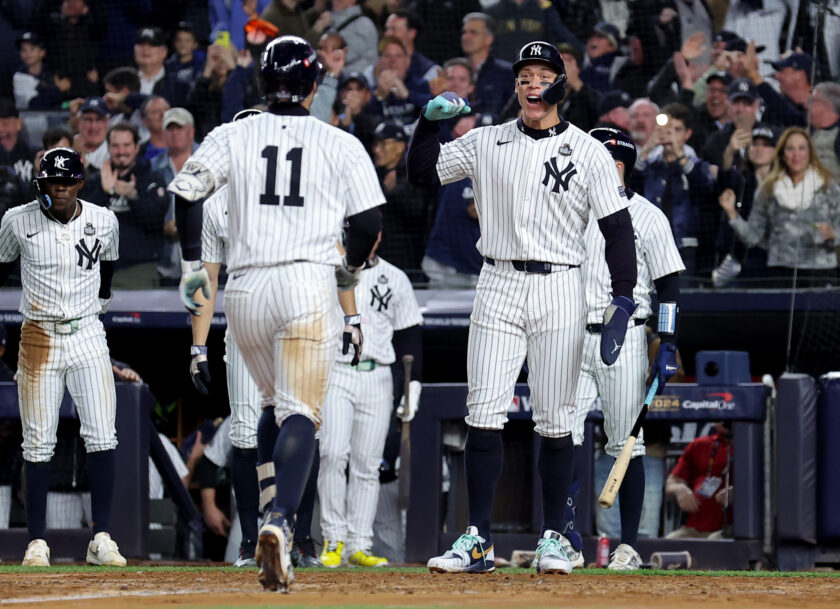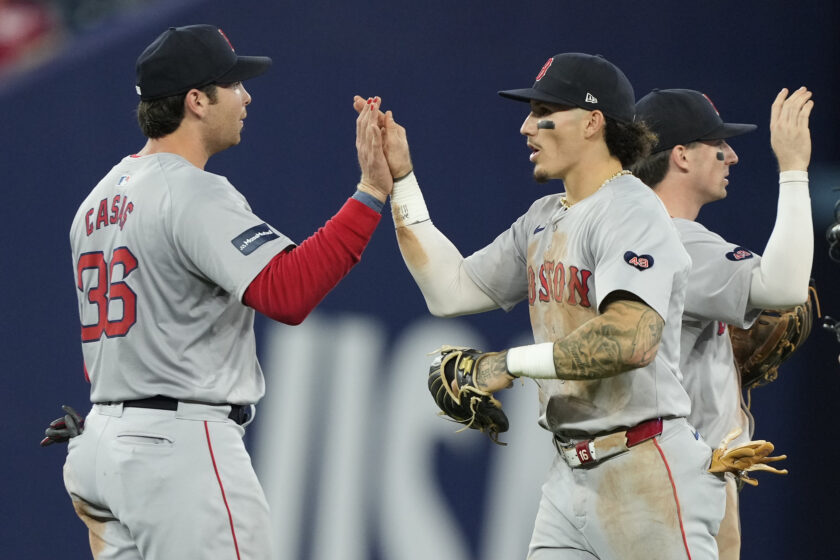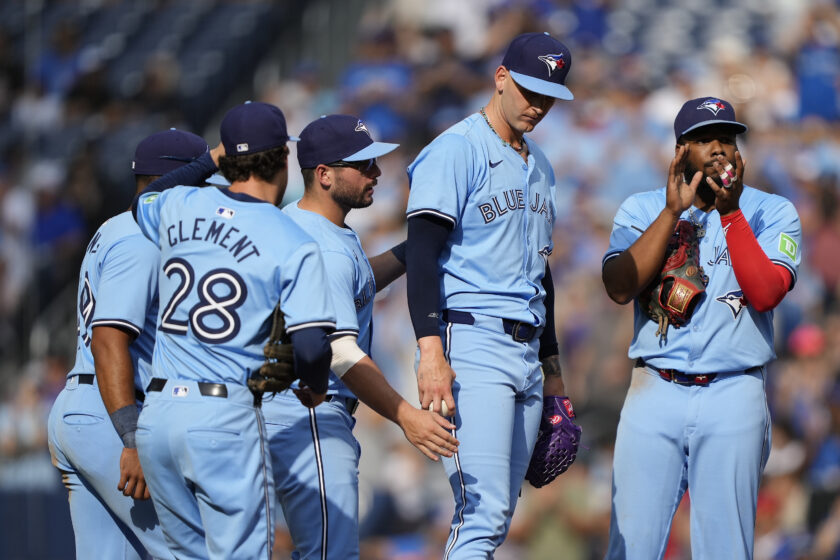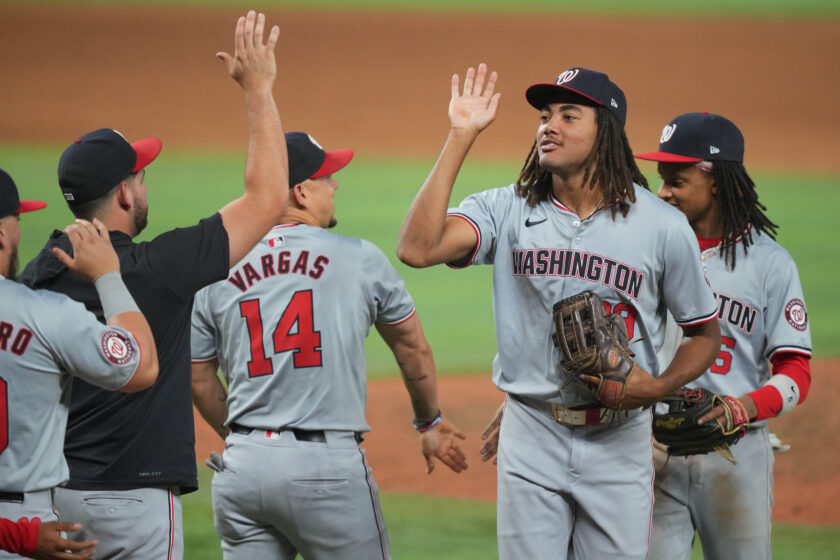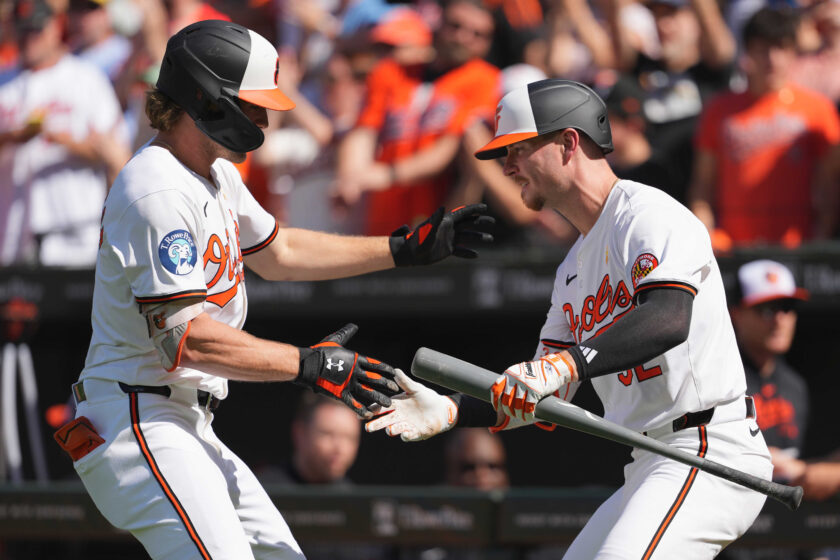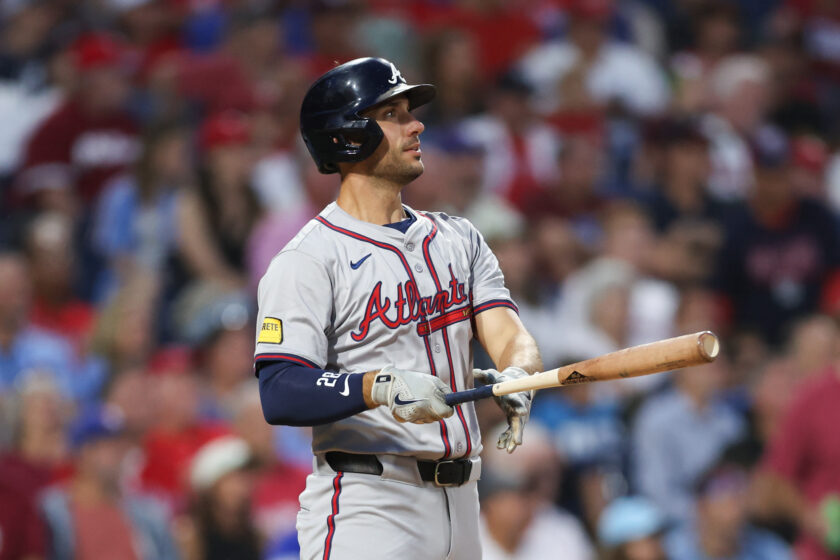MLB Postseason: Five most unlikely World Series winners since 1969
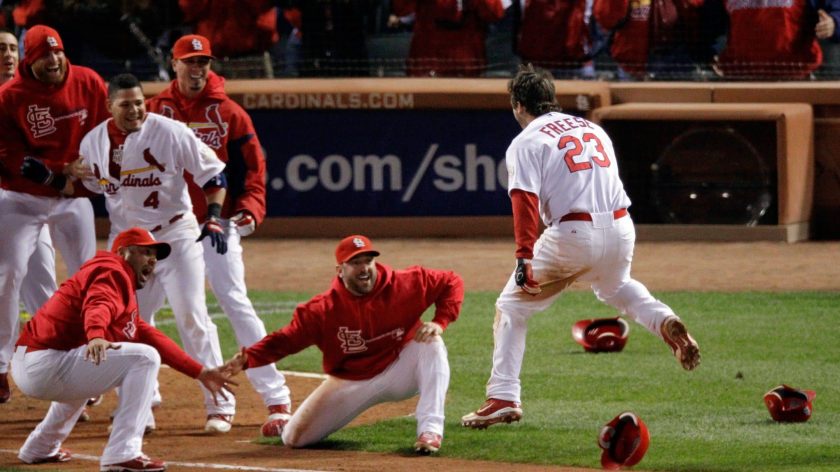
The 2018 MLB Postseason is underway and the World Series is up for grabs. Here are the five most unlikely World Series winners since 1969.
As fans for the Atlanta Braves, Cleveland Indians and Colorado Rockies prepare for their teams participating in the NL and AL division series, they all are underdogs to win and advance. Despite finishing with fewer wins than their series counterparts, each team can draw from postseason history for inspiration.
Starting in 1969, Major League Baseball introduced divisional play, which included an additional round of playoffs called the League Championship Series between the winners of each of the four divisions. Since then, more teams and additional rounds of the playoffs have been added, starting with the Wild Card and additional division champion to create the Division League Series. Finally, in 2012, an additional Wild Card team was added, providing a winner-take-all matchup between the Wild Card teams to advance to the LDS.
During that time there have been many teams that arrived on the postseason scene that surprised experts and won the World Series. Here is a list of the top five most unlikely teams to win the World Series.
St. Louis Cardinals — 2011
If not for the collapse of the Atlanta Braves, who were nine games ahead of the Cardinals for the Wild Card on Sept. 2, the Cardinals would have never reached the postseason. Despite the Braves collapse (lost 20 of final 30 games), the Cardinals still had to play almost perfect baseball to catch them.
St. Louis went 22-9 over their final 31 games to snatch the NL Wild Card straight from the hands of Atlanta. They then eliminated the heavily favored Philadelphia Phillies (who finished with 102 regular season wins, 12 more than the Cardinals) in five games in the NLDS.
While their offense was good during the regular season (led the NL in runs per game and batting average) they exploded in their six-game defeat of the Milwaukee Brewers in the NLCS. In that series, the Cardinals averaged 7.1 runs per game and hit .310 as a team.
Their World Series victory was one of the most dramatic in MLB history. In Game 6, they rallied from down three runs in the eighth inning to tie the game in the bottom of the ninth. Down to their last strike, David Freese tripled over RF Nelson Cruz, driving in two runs to tie the game. After Josh Hamilton’s HR in the 10th inning gave the Rangers their two-run lead back, Lance Berkman tied the game with an RBI single with the Cardinals down to their last strike again.
The Cardinals completed their comeback in the bottom of the 11th when Freese ended the game with a walk-off HR. St. Louis then finished their postseason run with a Game 7 win, completing one of the most amazing comeback stories and unlikely champions in MLB history.
I put the Cardinals on this list because of how miraculous their late season and postseason run was. Despite their remarkable play over that period, if the Braves didn’t suffer a historic collapse, the Cardinals never even reached the postseason.
Los Angeles Dodgers — 1988
The 1988 Los Angeles Dodgers were something literally out of Hollywood. One of the weakest offensive World Series champions in history, the Dodgers finished with just one player who drove in 80 RBI (Mike Marshall, 82 RBI), one player with more than 70 runs scored (Kirk Gibson, 106) and one player to hit above .280 (Kirk Gibson, .290).
The Dodgers were led by their pitching and staff ace Orel Hershiser. Hershiser won the NL Cy Young Award with a 23-8 record, 2.26 ERA and 1.05 WHIP. Hershiser also set the MLB record for consecutive scoreless innings, as he did not allow a run in his final 59.1 innings of the season.
In the NLCS the Dodgers faced a heavily favored New York Mets team that had dominated them during the regular season. In their 11 meetings against the Mets that season, the Dodgers lost 10 games. The Mets outscored them by 31 runs in their 11 meetings.
The series opened in Los Angeles, where the Mets defeated the Dodgers in all six games during the regular season, outscoring them 28-7. The Mets won two of the first three games (both wins came in Hershiser starts) and were three outs away from going up 3-1 in the series. Trailing 4-2 in the ninth inning, Mike Scioscia tied the game with a two-run HR of Doc Gooden. Kirk Gibson’s HR in the 12th inning gave the Dodgers the lead and amazingly after starting the day before, Hershiser came in to retire Kevin McReynolds with the bases loaded and two outs, tying the series at two. Riding the momentum, Los Angeles defeated the Mets again in Game 5 to head home with a 3-2 series lead.
Although the Mets fought back to force a Game 7, they had little life left after their loss in Game 4. Hershiser put the final nail in the Mets coffin, shutting them out in a 6-0 Dodgers win to send them to the World Series.
Despite their shocking defeat of the 100-win Mets, the Dodgers lost team leader and NL MVP Kirk Gibson to an injury in Game 5. If they weren’t already miserable offensively, facing the prospect of not having Gibson for the World Series made their task impossible.
Waiting for the Dodgers in the World Series were the mighty Oakland A’s. Unlike the current version of the A’s, who are 1-11 in their last 12 playoff series (includes two Wild Card game losses), the A’s of the late 1980s made three straight World Series from 1988-90. They won 104 games in 1988, led by MVP Jose Canseco (42 HR, 124 RBI, 120 runs scored) and Mark McGwire (32 HR, 99 RBI).
The tone for the series was set in Game 1 when trailing the A’s 4-3 and down to their final out, a hobbled Kirk Gibson, who could barely walk, hit a game-winning two-run HR off A’s dominant closer Dennis Eckersley. That event inspired the Dodgers who went on to defeat the A’s in five games, holding their powerful lineup to a .177 team BA and 11 runs scored.
[sc name=”MLB Center”]St. Louis Cardinals — 2006
The Cardinals looked like they had the NL Central all wrapped up on Sept. 20, leading the Houston Astros by seven games with 12 games remaining. However, St. Louis lost eight of their next nine games, including four straight against the Astros, to see their lead dwindle to just a half-game.
Facing one of the worst collapses in MLB history, the Cardinals recovered to win two of their final three games and hold on to win the NL Central. However, their 83 regular season wins made them a huge underdog to reach the World Series.
The Cardinals struggled mightily down the stretch. After starting the season 42-26, they had the fourth-worst winning percentage in the National League since June 20 (41-52). Nevertheless, they had little trouble defeating the favored San Diego Padres in four games in the NLDS, outscoring them 14-6.
Waiting for the Cardinals in the NLCS were the New York Mets who finished with 14 more regular season wins. Despite that differential and the Cardinals best regular season starter Chris Carpenter not winning a game, St. Louis defeated the Mets seven games.
The Cardinals hero was starter Jeff Suppan. Suppan threw eight shutout innings in his Game 3 win and held the Mets to just one run and two hits in seven innings in Game 7. St. Louis looked to be in trouble in Game 7 when Endy Chavez made perhaps the greatest catch in MLB postseason history, robbing Scott Rolen of a two-run HR in the top of the sixth. The Mets loaded the bases with one out in the bottom of the inning, but Suppan struck out Jose Valentin and induced Chavez to fly out to keep the game tied.
Yadier Molina, who hit .216 during the regular season with 6 HR in 417 AB, was a nightmare for the Mets all series. His two-run HR in the top of the ninth off Aaron Heilman capped a series which he hit .348 and drove in a team-high 6 runs.
The Mets fought back in the bottom of the ninth, putting the first two men on base, against rookie reliever Adam Wainwright, who was filling in as closer for the injured Jason Isringhausen. Wainwright struck out Carlos Beltran looking on a nasty curveball with the bases loaded to eliminate the Mets
The Cardinals faced the Detroit Tigers in the World Series and easily defeated them in five games. Their .516 regular season win percentage is the lowest ever for a World Series champion.
Kansas City Royals — 1985
Led by a strong pitching staff that included AL Cy Young Award winner Bret Saberhagen (20-6, 2.87 ERA, 1.05 WHIP), the Royals won the AL West. Despite having future Hall of Famer George Brett in their lineup (.335, 30 HR, 112 RBI), the Royals struggled offensively. They finished with a .253 team batting average and 687 runs scored during the regular season, both the second-lowest total in the American League.
Kansas City faced the Toronto Blue Jays in the ALCS, who were making their first postseason appearance in franchise history. The Royals, meanwhile, were playing in their sixth ALCS in the last 10 years.
Despite the advantage the Royals had in experience, the Blue Jays took a 3-1 series lead. In previous seasons, the Blue Jays would have advanced to the World Series as the LCS was a best-of-five from 1969-84. This was the first season MLB went to a best-of-seven format. The Royals recovered and despite playing Games 6 and 7 on the road, were able to rally and defeat Toronto in seven games.
Kansas City faced off against the St. Louis Cardinals in the World Series. Once again the Royals fell behind, as the Cardinals won three of the first four games. After winning Game 5 in St. Louis, the Royals found themselves three outs from elimination in Game 6. Trailing 1-0 entering the bottom of the ninth, Kansas City sent up Jorge Orta to pinch hit for Darryl Motley. Orta hit a weak ground ball toward first base and was called safe when umpire Don Denkinger ruled that Cardinals pitcher Todd Worrell did not beat Orta to first base after receiving the ball from first baseman Jack Clark. Replays clearly showed that Orta was out, but MLB did not have video replay back then.
The Royals rallied and won in walk-off fashion when pinch-hitter Dane Iorg singled with the bases loaded, driving in the tying and winning runs. The Cardinals never recovered from the blown call by Denkinger, and the Royals won Game 7 in a laugher, 11-0.
Kansas City became the first team to lose the first two games of the World Series at home and win the series. They also became the first team to win six straight elimination games in a postseason.
Minnesota Twins — 1987
Despite winning just 86 regular season games and finishing with the third worst road record in the American League (29-52), the Twins were fortunate that they had home field advantage in the ALCS. In 1987, home field advantage rotated from divisions. This was vital to the Twins who had won an MLB high 56 at the Metrodome.
The Detroit Tigers won the AL East, rallying from down 3.5 games back with eight games left. The Tigers finished with 12 more regular season wins than the Twins and were heavy favorites despite not having home-field advantage.
Back in 1948, the Boston Braves won the National League on the strength of their two best pitchers Johnny Sain and Warren Spahn. During a memorable September stretch where the two each made four starts in a 12-day span, winning all eight of them, a writer for the Boston Post termed the phrase “Spahn and Sain, then pray for rain”.
While it doesn’t rhyme, the 1987 Twins could have used the same phrase concerning their two top pitchers Frank Viola (17-10, 2.90 ERA) and Bert Blyleven (15-12, 4.01 ERA). The two combined to win 37 percent of the Twins regular season games.
The Twins won the first two games of the series at home and after losing Game 3 on a late HR by Pat Sheridan, shocked the Tigers by taking Games 4 and 5 at Detroit. The Twins offense battered a Tigers pitching staff that allowed the third fewest runs in the American League during the regular season. Minnesota scored 34 runs in the five-game series. Viola and Blyleven started four of the five games in the series with the Twins losing the only game they didn’t start.
In the World Series, the Twins faced the St. Louis Cardinals. Once again the Twins had the home field advantage despite finishing with nine fewer regular season wins. Just like the LCS, the World Series then rotated home field advantage every year.
Unlike their performance in the ALCS, the Twins retreated back to their regular season form on the road. After winning Games 1 and 2 at home behind Viola and Blyleven, the Twins lost all three games at Busch Stadium. Needing to win Games 6 and 7 at home, the Twins overcame an early deficit to win Game 6.
For the third straight year, the World Series went to a Game 7 and for the third straight year, the home team won. Behind World Series MVP Viola (8 IP, 2 R) the Twins defeated the Cardinals 4-2 to win their first World Series since moving from Washington to Minnesota in 1961.
The 1987 Twins are the only World Series winner who finished the regular season with a negative run differential. Minnesota was outscored 806-786 during the regular season. Viola and Blyleven started 9 of the Twins 12 postseason games (Twins went 7-2 in those starts and 1-2 in three starts made by Les Straker).
[sc name=”Generic Link Next” link=”https://elitesportsny.com/2018/09/30/mlb-postseason-2018-nl-west-central-still-up-for-grabs/” text=”October Baseball Is Already Chaotic” ] [sc name=”MLB Footer”]Mark Everett Kelly, formerly of ESPN, Mark Everett is a 2-time Emmy Winner that had to retire from ESPN in 2008 due to side effects of cancer treatment. Since then Mark has been active as a Public Speaker, Author and Blogger. He is a Sports History Expert and his speeches inspire many who fight daily setbacks to pursue their goals.
Mark occassionally writes for ESNY. He is the author of "My Scars Tell A Story" which highlights his endless battle fighting the side effects of cancer treatment. He also blogs on his website, ckmagicsports.com about "Living As A Cancer Survivor". Mark also does not hide that he has a personal relationship with Jesus. He despises judgemental people and his speeches encourage and speak up for those who can't speak for themselves.

